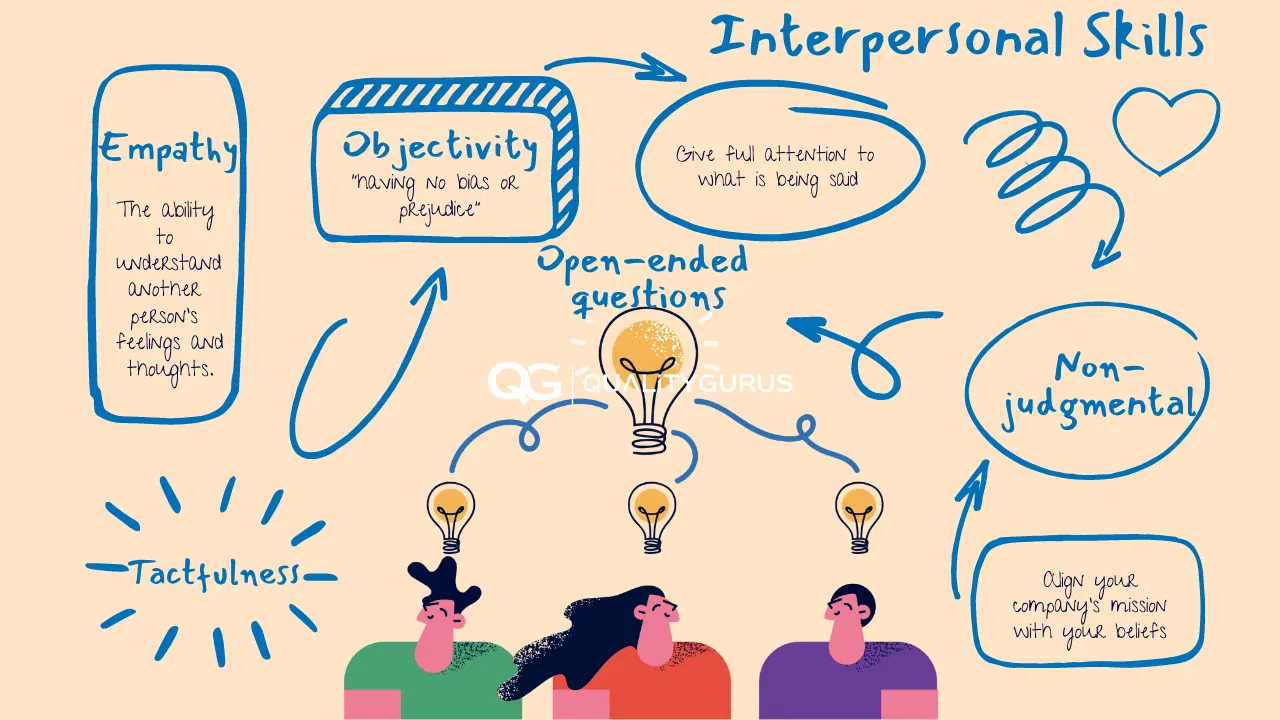
Mastering Interpersonal Skills in Work and Life
Title: Mastering Interpersonal Skills at Work and in Life
Introduction:
Interpersonal skills, often referred to as soft skills or people skills, are crucial for success both in the workplace and in our personal lives. These skills enable us to effectively communicate, collaborate, and build meaningful connections with others. Whether at work, in social settings, or in family life, possessing excellent interpersonal skills can significantly enhance one's quality of life. This essay explores the importance of interpersonal skills, identifies key traits to develop, and outlines practical steps to master these skills both professionally and personally.
Importance of Interpersonal Skills:
- Building Strong Relationships: Interpersonal skills help forge strong connections with colleagues, superiors, clients, friends, and family. Positive relationships are vital for a harmonious and productive work environment and a fulfilling personal life.
- Effective Communication: Effective communication is the foundation of all relationships. Excellent interpersonal skills enable individuals to articulate their ideas clearly, listen attentively, and resolve conflicts constructively.
- Teamwork and Collaboration: In the workplace, teamwork and collaboration are essential for achieving common goals. Strong interpersonal skills foster teamwork, leading to increased productivity and creativity.
- Conflict Resolution: Conflicts are inevitable in both professional and personal settings. Mastering interpersonal skills equips individuals with the ability to navigate conflicts diplomatically and find mutually acceptable solutions.
Traits to Develop for Excellent Interpersonal Skills:
- Empathy: Empathy is the ability to understand and share the feelings of others. Cultivating empathy allows individuals to connect with people on a deeper level and respond to their needs with compassion.
- Active Listening: Active listening involves fully concentrating, understanding, responding, and remembering what others are saying. Being an active listener helps in understanding diverse perspectives and building rapport.
- Emotional Intelligence: Emotional intelligence encompasses self-awareness, self-regulation, motivation, empathy, and social skills. Strengthening emotional intelligence enables better emotional control and enhanced interpersonal relationships.
- Adaptability: Being adaptable allows individuals to respond positively to changing circumstances and different personalities, fostering smoother interactions.
Practical Steps to Master Interpersonal Skills:
- Seek Feedback: Solicit feedback from colleagues, friends, and family to identify areas of improvement. Accept constructive criticism graciously and make efforts to incorporate it into your behavior.
- Develop Self-awareness: Understand your own strengths and weaknesses, and be mindful of your emotional reactions in various situations. Self-awareness is the first step towards improving interpersonal skills.
- Practice Empathy: Put yourself in others' shoes and try to understand their feelings and perspectives. Show genuine concern and support for their well-being.
- Engage in Active Listening: Practice active listening by maintaining eye contact, nodding, and responding appropriately during conversations. Avoid interrupting and focus on understanding the message being conveyed.
- Control Non-Verbal Cues: Be aware of your body language, tone of voice, and facial expressions. Positive non-verbal cues reinforce your communication and convey approachability.
- Handle Conflict Constructively: Approach conflicts with a calm and open mind. Focus on finding common ground and seeking win-win solutions.
- Participate in Team Activities: Engage in team-building exercises or group projects at work and in social circles to enhance collaboration skills.
- Continuous Learning: Read books, attend workshops, and take online courses on communication and interpersonal skills to expand your knowledge and refine your abilities.
Conclusion:
Mastering interpersonal skills is a lifelong journey that brings countless benefits both at work and in personal relationships. By developing empathy, active listening, emotional intelligence, and adaptability, individuals can create a positive and conducive environment for collaboration, communication, and growth. Striving to improve these skills continuously is an investment that yields invaluable rewards in all aspects of life. Remember, with practice and dedication, everyone can become adept at navigating the complexities of human interactions and achieve excellence in interpersonal skills.